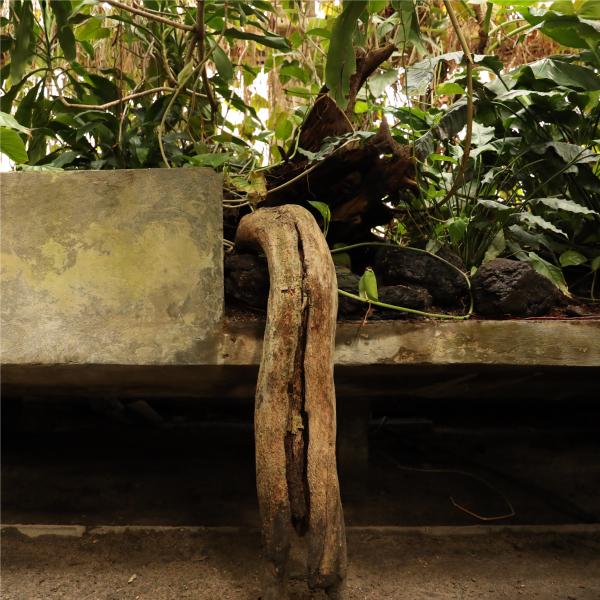"Plant Potential" Conference Explores Importance of Plant-Human Relations, November 5

On Friday, November 5, The University of Texas at Austin School of Architecture hosts Plant Potential, an online conference curated by Assistant Professor Aleksandra Jaeschke that will bring together five creative minds for a collective exploration of our relationship with plant life. Part of a larger, multi-part project made possible by the 2019-2021 Meadows Foundation Fellowship awarded by the Center for American Architecture and Design, the Plant Potential conference and accompanying website will showcase research, design work, and conversations about the importance of plant-human relations.
“Plants are our direct line to the sun; and yet, convinced of our ability to synthesize our future welfare out of hydrocarbons and minerals, we have estranged ourselves from plant intelligence,” Jaeschke said. “Unaware of its cultural significance, we moderns have let go of the Indigenous plant wisdom. We have become plant illiterate. Whereas the loss of biodiversity will strikingly impact resource availability, it has already—albeit less noticeably—reduced vast regions of western life into a cultural desert. Returning to plants is one way to enrich our lives and reconnect with the ecological, cultural, and spiritual dimensions of our natural environment.”
The virtual conference and panel discussion will take place Friday, November 5 from 1:00 till 4:00 p.m. via Zoom and will be live-streamed on the Texas Architecture YouTube channel. Featuring five panelists whose approaches vary in scope and character, Plant Potential will explore a range of theoretical and practical endeavors to help us redesign our relationship with the environment and embrace the nurturing potential of plants as food, material resource, environment makers, companions, or teachers. Panelists include:
- Ron Finley, American urban gardener, founder of the Ron Finley Project, Los Angeles, CA
- Mae-ling Lokko, Ghanaian-Filipino architectural scientist, founder of Willow Technologies, Accra, Ghana, assistant professor adjunct at The Cooper Union, New York
- Oliver Kellhammer, German Canadian artist and socio-ecological researcher, assistant professor at Parsons, New York
- Roth, Argentine artist, founder of Roth Architecture, creator of Azulik eco-resort and SFER IK museum, Tulum, Mexico
- Sanford Kwinter, Canadian architectural theorist, professor at Pratt, New York
In addition to the virtual conference, Plant Potential will culminate with the launch of the project website—www.plant-potential.world—on November 1, 2021, and a forthcoming book published by the Center for American Architecture and Design as part of their Centerline series. Next to the conference recordings, the site will house: The Plant Potential conversation series, an exploration of the work of botanists, ecologists, gardeners, herbalists, chefs, artists, designers, and philosophers meant to help us understand the importance of plant-human relations and plant seeds for a new way of thinking about them; and student work from the Plant Potential advanced design studio, led by Jaeschke in Spring 2021. A design experiment driven by the desire to shift the focus away from built forms towards fundamental interspecies codependences and emerging from them psycho-cultural opportunities, the studio took students on a collective expedition into the imaginary futures of the spaces of Hawaiian ethnobotany possible thanks to a collaboration with Hui Kū Maoli Ola Plant Nursery (Kāne’ohe, Hawai’i) facilitated by Sean Connelly, a Honolulu-based artist-architect, founder of After Oceanic Projects.
Plant Potential was curated by Aleksandra Jaeschke, an architect, assistant professor of architecture and sustainable design, and the 2019 winner of the Harvard Graduate School of Design’s prestigious Wheelwright Prize.
